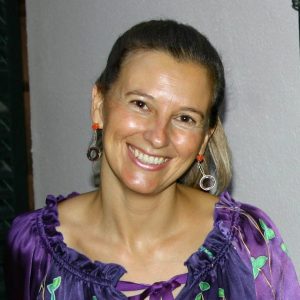 Dr. Paula Llull-Llobera is Gallery Manager at Craft ACT: Craft + Design Centre in Canberra. She is a member of the association of Spanish Researchers in Australia-Pacific (SRAP). Paula completed her PhD at the University of Seville (Spain) in 2017. Her main topic is the relationship artists establish with nature and public space through sculpture and installation, and how these media evolve formally, often influenced by disciplines outside the world of art, with the goal of achieving a true integration into the environment. She has published several articles and interviews in Sculpture magazine, chapters in ISC monographs and in the ISC blog re:sculpt. Most of her previous work was producing and curating “site-specific” works in museums and art centres in Spain and in Australia.
Dr. Paula Llull-Llobera is Gallery Manager at Craft ACT: Craft + Design Centre in Canberra. She is a member of the association of Spanish Researchers in Australia-Pacific (SRAP). Paula completed her PhD at the University of Seville (Spain) in 2017. Her main topic is the relationship artists establish with nature and public space through sculpture and installation, and how these media evolve formally, often influenced by disciplines outside the world of art, with the goal of achieving a true integration into the environment. She has published several articles and interviews in Sculpture magazine, chapters in ISC monographs and in the ISC blog re:sculpt. Most of her previous work was producing and curating “site-specific” works in museums and art centres in Spain and in Australia.
Dr. Juan Pablo Guerschman
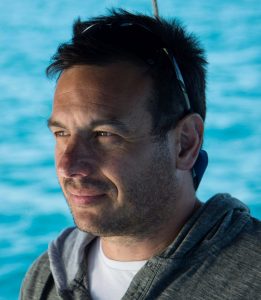 Dr. Juan Pablo Guerschman is a senior Research Scientist with CSIRO Land and Water. He joined CSIRO in 2005, after receiving a PhD in Agricultural Sciences from the University of Buenos Aires, Argentina. In his first years in CSIRO as a postdoc his research focused on the calibration and application of a regional carbon cycle model, and the integration of remote sensing and ground-based observations through model-data assimilation for the analysis of carbon dynamics of tropical savannas. From 2007 onwards, he has been a project researcher and then research scientist with the model-data integration team of the Environmental Earth Observation Program. He has played a leading role in developing and evaluating methods to use satellite observations in hydrological and land management applications. Between 2009 and 2012, he led a part of the research portfolio of the Water Information Research & Development Alliance between the Bureau of Meteorology and CSIRO Water for a Healthy Country Flagship, around remote sensing of land cover and landscape water and using this to inform the Australian Water Resources and Assessment System. Juan has also been actively involved in developing algorithms for estimating vegetation cover from remotely sensed data across rangelands and croplands and applying these estimates to deliver timely information for better management of these environments.
Dr. Juan Pablo Guerschman is a senior Research Scientist with CSIRO Land and Water. He joined CSIRO in 2005, after receiving a PhD in Agricultural Sciences from the University of Buenos Aires, Argentina. In his first years in CSIRO as a postdoc his research focused on the calibration and application of a regional carbon cycle model, and the integration of remote sensing and ground-based observations through model-data assimilation for the analysis of carbon dynamics of tropical savannas. From 2007 onwards, he has been a project researcher and then research scientist with the model-data integration team of the Environmental Earth Observation Program. He has played a leading role in developing and evaluating methods to use satellite observations in hydrological and land management applications. Between 2009 and 2012, he led a part of the research portfolio of the Water Information Research & Development Alliance between the Bureau of Meteorology and CSIRO Water for a Healthy Country Flagship, around remote sensing of land cover and landscape water and using this to inform the Australian Water Resources and Assessment System. Juan has also been actively involved in developing algorithms for estimating vegetation cover from remotely sensed data across rangelands and croplands and applying these estimates to deliver timely information for better management of these environments.
Dr. Marta Yebra
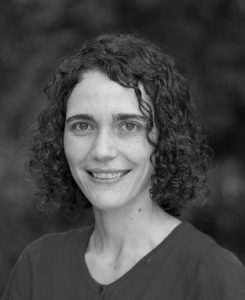 Dr. Marta Yebra is a Senior Scientist at the Centre for Water and Landscape Dynamics (Fenner School of Environment and Society) with a focus on using remote sensing data to monitor, quantify and forecast natural resources, natural hazards, and landscape function and health at local, regional and global scales.
Dr. Marta Yebra is a Senior Scientist at the Centre for Water and Landscape Dynamics (Fenner School of Environment and Society) with a focus on using remote sensing data to monitor, quantify and forecast natural resources, natural hazards, and landscape function and health at local, regional and global scales.
From 2004-2010 she was employed at the University of Alcalá, where she was involved in two large multidisciplinary projects which assessed and integrated the main fire risk factors and analysed fire risk trends, considering potential changes in socio-economic factors as well as foreseen impacts of global climate change. During her research, she spent time at the Centre for Spatial Technologies and Remote Sensing (University of California at Davis, USA); the National Institute of Agricultural Technology (INTA, Argentina) and the School of Environmental and Life Sciences of Salford (UK).
From 2010 to 2013 Marta was a postdoctoral fellow at CSIRO Land and Water as developing innovative methods to integrate satellite and in situ observations from micrometeorological tower sites with models to predict carbon-water coupling.
In 2017, Dr. Yebra was awarded the prestigious Max Day Environmental Science Fellowship from the Australian Academy of Science. She was also awarded the CSIRO Pyne-Scott Career Award in 2013.
Marta is an Associate editor for Remote Sensing of Environment (Elsevier), highest ranked journal in Earth observation for environmental applications (impact factor 6.265).
She has been invited to present at 17 national and international conferences, including two keynote talks. Dr. Yebra has been a member of nine scientific conference committees and convenor of national and international conferences and workshops.
Academic teaching in 11 undergraduate and graduate courses, including “Advanced Remote Sensing and GIS”, “Fire in the Environment”, and “Environmental measurement, modelling and monitoring”. Accreditation as a senior lecturer by the Spanish Agency for Quality Assessment and Accreditation. She supervises honours and graduates research scholars in diverse wildland fire topics.
Dr. Francisco Sánchez-Bayo
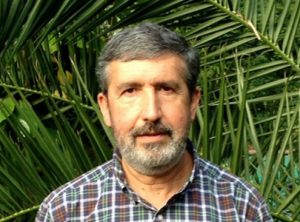 Dr. Sánchez-Bayo was born in Spain and studied at the Autonomous University of Madrid, where he obtained a Master’s degree in Environmental Sciences and a doctorate in Ecology. After a post-doctoral stint in Australia, he was an Assistant Professor at Chiba University (Japan) for five years, where he taught environmental toxicology and studied the ecological impacts of pesticides in paddy fields. Upon his return to Australia, he worked at the Centre for Ecotoxicology in the Office of the Environment & Heritage NSW. He is currently Honorary Associate at the Sydney Institute of Agriculture within the School of Life & Environmental Sciences, University of Sydney. He is author and co-author of over eighty scientific articles and book chapters on the environmental impact and risk of pesticides, ecology and related subjects, and editor of the book “Ecological Impacts of Toxic Chemicals”. He serves as Associate Editor of the journal Entomologia Generalis, reviewer of some 50 international journals and expert assessor for evaluation of scientific projects in seven countries.
Dr. Sánchez-Bayo was born in Spain and studied at the Autonomous University of Madrid, where he obtained a Master’s degree in Environmental Sciences and a doctorate in Ecology. After a post-doctoral stint in Australia, he was an Assistant Professor at Chiba University (Japan) for five years, where he taught environmental toxicology and studied the ecological impacts of pesticides in paddy fields. Upon his return to Australia, he worked at the Centre for Ecotoxicology in the Office of the Environment & Heritage NSW. He is currently Honorary Associate at the Sydney Institute of Agriculture within the School of Life & Environmental Sciences, University of Sydney. He is author and co-author of over eighty scientific articles and book chapters on the environmental impact and risk of pesticides, ecology and related subjects, and editor of the book “Ecological Impacts of Toxic Chemicals”. He serves as Associate Editor of the journal Entomologia Generalis, reviewer of some 50 international journals and expert assessor for evaluation of scientific projects in seven countries.
Prof. Jimmy Botella
 Dr. Botella’s research interests are in genetic engineering, molecular biology and signal transduction in plants.
Dr. Botella’s research interests are in genetic engineering, molecular biology and signal transduction in plants.
Dr. Jimmy Botella is Professor of Plant Biotechnology at the University of Queensland. He obtained a degree in Quantum Chemistry from the University of Madrid (Spain) and a PhD in Biochemistry from the University of Málaga (Spain). After postdoctoral positions at Michigan State University and Pennsylvania State University he joined the University of Queensland in 1995. At UQ he founded the Plant Genetic Engineering Laboratory (PGEL) specialising in the fields of tropical and subtropical agricultural biotechnology for almost 15 years. J. Botella has eleven international patents in the field of Plant Biotechnology and is a founding member of two biotechnology companies (Coridon Ltd. and Origo Biotech).
Dr. Botella is a member of the Plant Molecular Biology and Biotechnology research group.
Dr. Marina Trigueros
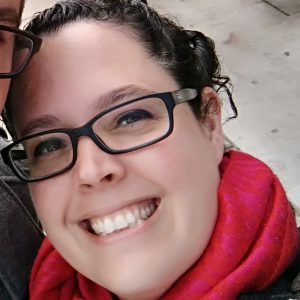 Marina Trigueros is a Scientific Graphic Designer and Animator at Cariboo Design and a member of the association of Spanish Researchers in Australia-Pacific. Cariboo is a graphic design Studio devoted to Scientific Illustration producing 3D animations, covers and pictures for scientific journals, stunning posters and logos for biotech companies. These creations aim to make a difference in the way organisations explain science, and how their target public understands it. Cariboo has recently collaborated with CropLife Australia which represents the innovators, developers, manufacturers, formulators and registrants of crop protection and ag-biotechnology products.
Marina Trigueros is a Scientific Graphic Designer and Animator at Cariboo Design and a member of the association of Spanish Researchers in Australia-Pacific. Cariboo is a graphic design Studio devoted to Scientific Illustration producing 3D animations, covers and pictures for scientific journals, stunning posters and logos for biotech companies. These creations aim to make a difference in the way organisations explain science, and how their target public understands it. Cariboo has recently collaborated with CropLife Australia which represents the innovators, developers, manufacturers, formulators and registrants of crop protection and ag-biotechnology products.
Prof. Karine Chevreul
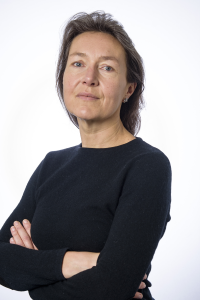 Karine Chevreul is Professor of Public Health and Health Economics URC Eco Paris and Deputy Director ECEVE, INSERM, Paris (France). Karine Chevreul is a medical doctor and Professor in public health, specialising in health policy and health economics. She completed her PhD at the London School of Economics and has been a technical advisor to policy makers and Ministers of health and of social security, elderly, disabled and family. Her field of research covers health services research, and e-health in the field of mental health. She is currently the Head of Health Services Research Projects in the Health Economics and Health Services Research Unit of the Paris Hospital Consortium (AP-HP), the Deputy Head of an INSERM and University of Paris 7 team (ECEVE). She is also the head of the ERASM team conducting research in Mental Health Services and Economics. She is currently at the ANU under the Jean Monnet Europa policy Labs Visiting Fellowship.
Karine Chevreul is Professor of Public Health and Health Economics URC Eco Paris and Deputy Director ECEVE, INSERM, Paris (France). Karine Chevreul is a medical doctor and Professor in public health, specialising in health policy and health economics. She completed her PhD at the London School of Economics and has been a technical advisor to policy makers and Ministers of health and of social security, elderly, disabled and family. Her field of research covers health services research, and e-health in the field of mental health. She is currently the Head of Health Services Research Projects in the Health Economics and Health Services Research Unit of the Paris Hospital Consortium (AP-HP), the Deputy Head of an INSERM and University of Paris 7 team (ECEVE). She is also the head of the ERASM team conducting research in Mental Health Services and Economics. She is currently at the ANU under the Jean Monnet Europa policy Labs Visiting Fellowship.
Prof. Carlos García-Alonso
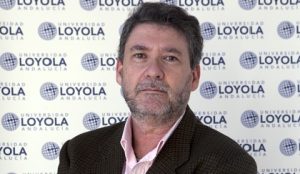 Prof. Carlos García-Alonso is Deputy Vice-Chancellor of the Loyola University Andalucía. He is an Agricultural Engineer, PhD. His areas of research are Operational research, Modeling, Simulation models and computational economy and Management of the uncertainty (Generalized information theory and Fuzzy logic). He has played a central role in the development of health systems engineering in Spain. Carlos R. García-Alonso has designed and developed the following software prototypes (main designs): computer-based system for the assessment of autocorrelation geographical analysis (to identify and locate highly significant –prevalence and incidence- spatial areas mainly for health care), computer-based system for the evaluation of relative technical efficiency (health care management) and a simulation model for the assessment of illnesses costs (health care management). All of them are hybrid models that include: a simulation engine, a fuzzy inference engine (for expert knowledge management) and, finally, an operational or a statistical model (cost analysis, autocorrelation analysis, relative efficiency, etc.). He is the secretary of the research reference network PSICOST and has participated in major Horizon 2020 European projects in mental health economics and service research such as REFINEMENT and PECUNIA.
Prof. Carlos García-Alonso is Deputy Vice-Chancellor of the Loyola University Andalucía. He is an Agricultural Engineer, PhD. His areas of research are Operational research, Modeling, Simulation models and computational economy and Management of the uncertainty (Generalized information theory and Fuzzy logic). He has played a central role in the development of health systems engineering in Spain. Carlos R. García-Alonso has designed and developed the following software prototypes (main designs): computer-based system for the assessment of autocorrelation geographical analysis (to identify and locate highly significant –prevalence and incidence- spatial areas mainly for health care), computer-based system for the evaluation of relative technical efficiency (health care management) and a simulation model for the assessment of illnesses costs (health care management). All of them are hybrid models that include: a simulation engine, a fuzzy inference engine (for expert knowledge management) and, finally, an operational or a statistical model (cost analysis, autocorrelation analysis, relative efficiency, etc.). He is the secretary of the research reference network PSICOST and has participated in major Horizon 2020 European projects in mental health economics and service research such as REFINEMENT and PECUNIA.
Dr. Katherine Daniell
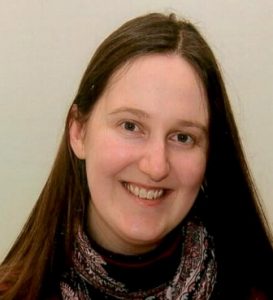 Katherine is Senior Lecturer, ANU Fenner School of Environment and Society, and President of the Australian-French Association for Research and Innovation (AFRAN). Katherine is Research Lead at the 3A Institute – the ANU’s first innovation institute with the mission of building a new applied science to ‘manage the machines’. Katherine’s current research work focusses on the challenges of implementing collaborative approaches to policy and action for sustainable development. In this field, she has recently worked in Europe and the Asia-Pacific on projects related to international science and technology cooperation, water governance, risk management, sustainable urban development and climate change adaptation. Katherine has produced over 100 academic publications including 4 books and and a diverse range of book chapters, papers, reports and edited collections. Katherine has been the ANU’s European Research Development Manager. Katherine has previously worked in the ANU’s Centre for European Studies, Centre for Policy Innovation and the H.C. Coombs Policy Forum at the Crawford School of Public Policy on a range of Australian Public Service – ANU and international cooperation projects, including the PACE-Net and PACE-Net+ EU projects on developing Pacific-European bi-regional dialogue on science, technology and innovation. Katherine has received many awards and honours for her work including a John Monash Scholarship and being elected as a Fellow of the Peter Cullen Water and Environment Trust. She has served on the ACT (2009-2011, 2015-2016) and National (2013-2014) Selection Panels for the John Monash Scholarships. Katherine currently serves as a member of the National Committee on Water Engineering (Engineers Australia), director and board member of the Peter Cullen Water and Environment Trust, a member of the Initiatives of the Future of Great Rivers and is the Editor of the Australasian Journal of Water Resources.
Katherine is Senior Lecturer, ANU Fenner School of Environment and Society, and President of the Australian-French Association for Research and Innovation (AFRAN). Katherine is Research Lead at the 3A Institute – the ANU’s first innovation institute with the mission of building a new applied science to ‘manage the machines’. Katherine’s current research work focusses on the challenges of implementing collaborative approaches to policy and action for sustainable development. In this field, she has recently worked in Europe and the Asia-Pacific on projects related to international science and technology cooperation, water governance, risk management, sustainable urban development and climate change adaptation. Katherine has produced over 100 academic publications including 4 books and and a diverse range of book chapters, papers, reports and edited collections. Katherine has been the ANU’s European Research Development Manager. Katherine has previously worked in the ANU’s Centre for European Studies, Centre for Policy Innovation and the H.C. Coombs Policy Forum at the Crawford School of Public Policy on a range of Australian Public Service – ANU and international cooperation projects, including the PACE-Net and PACE-Net+ EU projects on developing Pacific-European bi-regional dialogue on science, technology and innovation. Katherine has received many awards and honours for her work including a John Monash Scholarship and being elected as a Fellow of the Peter Cullen Water and Environment Trust. She has served on the ACT (2009-2011, 2015-2016) and National (2013-2014) Selection Panels for the John Monash Scholarships. Katherine currently serves as a member of the National Committee on Water Engineering (Engineers Australia), director and board member of the Peter Cullen Water and Environment Trust, a member of the Initiatives of the Future of Great Rivers and is the Editor of the Australasian Journal of Water Resources.
Prof. Robyn Lucas
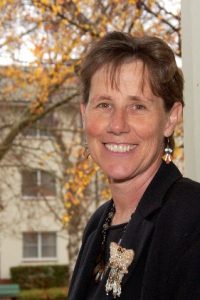 Prof. Lucas is a medically trained epidemiologist and specialist public health physician. She holds adjunct positions at James Cook University and the Telethon Kids Institute, University of Western Australia. Lucas completed science and medical degrees in 1975 and 1979 (respectively) at the University of Auckland, and worked in clinical settings before completing a Masters of Public Health and Tropical Medicine from James Cook University (2000). She received the Australasian College of Tropical Medicine Medal for highest achievement in that course. In 2004 Lucas completed a PhD in Epidemiology and Population Health, examining psychological and social stress effects on immune function. Simultaneous with her PhD work, Lucas was the main contributing author to the WHO Global Burden of Disease due Ultraviolet Radiation assessment, developing the methodology and undertaking all analyses for that work. In 2005 Lucas was awarded Fellowship of the Faculty of Public Health Medicine. She was a reviewer, then author and now panel member and author of the “Health impacts of ozone depletion” chapters in the 2003, 2007 and 2011 reports of the UNEP Environmental Effects Assessment Panel for the Montreal Protocol on Ozone Depletion. Since completing her PhD, Lucas has led internationally recognized research, developed national and international collaborations, been highly successful in seeking funding for ongoing work and participated in the translation of that work into sun exposure policy. She has had an active teaching role at the ANU Medical School (ANUMS) and been instrumental in the development of epidemiology and biostatistics short courses at the National Centre for Epidemiology and Population Health (NCEPH). She supervises a growing number of doctoral students at ANU and elsewhere and actively contributes to NCEPH, the ANU and the wider academic and general community.
Prof. Lucas is a medically trained epidemiologist and specialist public health physician. She holds adjunct positions at James Cook University and the Telethon Kids Institute, University of Western Australia. Lucas completed science and medical degrees in 1975 and 1979 (respectively) at the University of Auckland, and worked in clinical settings before completing a Masters of Public Health and Tropical Medicine from James Cook University (2000). She received the Australasian College of Tropical Medicine Medal for highest achievement in that course. In 2004 Lucas completed a PhD in Epidemiology and Population Health, examining psychological and social stress effects on immune function. Simultaneous with her PhD work, Lucas was the main contributing author to the WHO Global Burden of Disease due Ultraviolet Radiation assessment, developing the methodology and undertaking all analyses for that work. In 2005 Lucas was awarded Fellowship of the Faculty of Public Health Medicine. She was a reviewer, then author and now panel member and author of the “Health impacts of ozone depletion” chapters in the 2003, 2007 and 2011 reports of the UNEP Environmental Effects Assessment Panel for the Montreal Protocol on Ozone Depletion. Since completing her PhD, Lucas has led internationally recognized research, developed national and international collaborations, been highly successful in seeking funding for ongoing work and participated in the translation of that work into sun exposure policy. She has had an active teaching role at the ANU Medical School (ANUMS) and been instrumental in the development of epidemiology and biostatistics short courses at the National Centre for Epidemiology and Population Health (NCEPH). She supervises a growing number of doctoral students at ANU and elsewhere and actively contributes to NCEPH, the ANU and the wider academic and general community.
